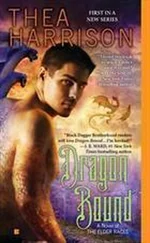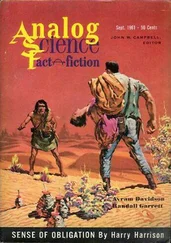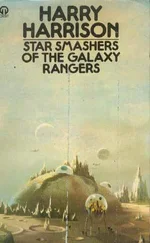M Harrison - Viriconium
Здесь есть возможность читать онлайн «M Harrison - Viriconium» весь текст электронной книги совершенно бесплатно (целиком полную версию без сокращений). В некоторых случаях можно слушать аудио, скачать через торрент в формате fb2 и присутствует краткое содержание. Жанр: Фэнтези, на английском языке. Описание произведения, (предисловие) а так же отзывы посетителей доступны на портале библиотеки ЛибКат.
- Название:Viriconium
- Автор:
- Жанр:
- Год:неизвестен
- ISBN:нет данных
- Рейтинг книги:3 / 5. Голосов: 1
-
Избранное:Добавить в избранное
- Отзывы:
-
Ваша оценка:
- 60
- 1
- 2
- 3
- 4
- 5
Viriconium: краткое содержание, описание и аннотация
Предлагаем к чтению аннотацию, описание, краткое содержание или предисловие (зависит от того, что написал сам автор книги «Viriconium»). Если вы не нашли необходимую информацию о книге — напишите в комментариях, мы постараемся отыскать её.
Viriconium — читать онлайн бесплатно полную книгу (весь текст) целиком
Ниже представлен текст книги, разбитый по страницам. Система сохранения места последней прочитанной страницы, позволяет с удобством читать онлайн бесплатно книгу «Viriconium», без необходимости каждый раз заново искать на чём Вы остановились. Поставьте закладку, и сможете в любой момент перейти на страницу, на которой закончили чтение.
Интервал:
Закладка:
His heavy, pleasant face was already well-known about the rings when Vera came to the city. Under the aegis of the Blue Anemone he had killed forty men. As a result the other “mutual” associations often arranged a truce among themselves in order to bring about his death. The Feverfew Anschluss had a special interest in this, as did the Fourth of October and the Fish-Head Men from Austonley. At times even his relations with the Anemone were difficult. He took it calmly, affecting an air of amusement which-as in other notorious bravos-seems to have masked not anxiety but an indifference of which he was rather ashamed, and which in itself sometimes frightened him. He let himself be seen about the Quarter unaccompanied, and walked openly about in the High City, where Vera first observed him from an upper room.
The Little Humpbacked Horse was history by then: she had carried a lamp in Mariana Natesby, overcome with furious concentration the debilitating danse d’ecole work and formalism of Lympany’s The Ginger Boy. She had danced with de Cuevas, then past the height of his powers, and been his lover; she had had her portrait painted once a year for the oleo-graph trade, as “Delphine,” “Manalas,” and-looking over a parapet or smiling mysteriously under a hat-as the unnamed girl in The Fire Last Wednesday at Lowth. She had got her full growth. At work, though she was so tall, her body seemed compacted, pulled in on itself like the spring of a humane killer: but she looked exhausted when the makeup came off, and somehow underfed as she slumped awkwardly, legs apart, on a low chair in her sweat-stained practice clothes. She had forgotten how to sit. She was “all professional deformity in body and soul.” Her huge eyes gave you their attention until she thought you were looking at someone else, then became blank and tired.
She never lost her determination, but an unease had come over her.
In the morning before practice she could be seen in the workmen’s cafes down by the market, huddled and fragile-looking in an expensive woollen coat. She listened to the sad-sounding traders’ calls in the early fog, hearing them as remote, and as urgent as the cries of lookouts in the bows of a ship. “Two fathoms and shelving!” She watched the girls playing blind Michael in the courtyard off the Plaza of Realised Time, but as soon as they recognised her walked quickly away. “One fathom!”
The first time she saw Egon Rhys she ran down into the street without thinking and found him face to face with two or three members of the Yellow Paper College. It was a fraught moment; razors were already out in the weird Minnet-Saba light, which lay across the paving stones the colour of mercury. Rhys had his back to some iron railings, and a line of blood ran vertically down his jaw from a nick under one eye.
“Leave that man alone!” she said. At ten years old in the depressed towns of the Midland Levels she had seen unemployed boys fighting quietly under the bridges, building fires on waste ground. “Can’t you find anything better to do?”
Rhys stared at her in astonishment and jumped over the railings.
“Don’t ask me who she was,” he said later in the Dryad’s Saddle. “I legged it out of there faster than you could say, right through someone’s front garden. They’re hard fuckers, those Yellow Paper Men.” He touched the cut they had given him. “I think they’ve chipped my cheekbone.”
He laughed.
“Don’t ask me anything!”
But after that, Vera seemed to be everywhere. He had quick glimpses of a white face with heavily made-up eyes among the crowds that filled the Market Quarter at the close of every short winter afternoon. He thought he saw her in the audience at the ring behind the Dryad’s Saddle. (She was blinking in the fumes from the naphtha lamps.) Later she followed him from venue to venue in the city and brought him great bunches of sol d’or whenever he won.
With the flowerboys she sent her name, and tickets to the Prospekt Theatre. There he was irritated by the orchestra, confused by the constant changes of scene, and embarrassed by the revealing costumes of the dancers. The smell of dust and sweat and the thud of their feet on the stage spoiled the illusion for him: he had always understood dancing to be graceful. When Vera had him brought up to her dressing room afterwards, he found her wearing an old silk practice top rotting away under the arms, and a pair of loose, threadbare woollen stockings out of which someone had cut the feet. “I have to keep my calves warm,” she explained when she caught him staring at them. He was horrified by the negligent way she sprawled, watching him intently in the mirrors, and he thought her face seemed as hard and tired as a man’s; he left as soon as he could.
Vera went home and stood irresolutely near her bed. The geranium on the windowsill was like an artificial flower on a curved stem, its white petals more or less transparent as the clouds covered and uncovered the moon. She imagined saying to him,
“You smell of geraniums.”
She began to buy him the latest novels. Just then, too, a new kind of music was being played everywhere, so she took him to concerts. She commissioned Ens Laurin Ashlyme to paint his portrait. He couldn’t be bothered to read, he said; he listened distractedly to the whine of the cor anglais, then stared over his shoulder all evening as if he had seen someone he knew; he frightened the artist by showing him how good an edge his palette knife would take. “Don’t send so many flowers,” he told her. Nothing she could offer seemed to interest him, not even his own notoriety.
Then he watched a cynical turn called Insects at the Allotrope Cabaret in Cheminor. One of the props used in this was a large yellow locust. When they first dragged it onto the cramped Allotrope stage it appeared to be a clever waxwork. But soon it moved, and even waved one of its hands, and the audience discovered among the trembling antennae and gauze wings a naked woman, painted with wax, lying on her back with her knees raised to stimulate the bent rear legs of the insect. She wore to represent its head a stylised, highly varnished mask. Fascinated, Rhys leaned forward to get a better view. Vera heard his breath go in with a hiss. He said loudly, “What’s that? What is that animal?” People began to laugh at his enthusiasm; they couldn’t see that the double entendre of the act meant nothing to him. “Does anyone know?” he asked them.
“Hush!” said Vera. “You’re spoiling it for everyone else.”
Poor lighting and a smell of stale food made the Allotrope a cheerless place to perform; it was cold. The woman in the insect mask, having first adjusted it on her shoulders so that it would face the audience when she did, stood up and made the best she could of an “expressive” dance, crossing and uncrossing her thick forearms in front of her while her breath steamed into the chilly air and her feet slapped one two three, one two three on the unchalked boards. But Rhys would not leave until the bitter end, when the mask came off and under it was revealed the triumphant smile, disarranged chestnut hair, and tired puffy face of some local artiste hardly sixteen years old, to whistles of delight.
Outside, their shadows fell huge and black on the wall that runs, covered with peeling political cartoons, the length of Endingall Street. “It doesn’t seem much to stand in front of an audience for,” said Vera, imitating the barren, oppressive little steps. “I would be frightened to go on.” She shuddered sympathetically. “Did you see her poor ankles?”
Rhys made an impatient gesture.
“I thought it was very artistic,” he said. Then: “That animal! Do things like that exist anymore?”
Vera laughed.
“Go on Allman’s Heath and see for yourself. Isn’t that where you’re supposed to go to see them? What would you do if you were face to face with it now? A thing as big as that?”
Читать дальшеИнтервал:
Закладка:
Похожие книги на «Viriconium»
Представляем Вашему вниманию похожие книги на «Viriconium» списком для выбора. Мы отобрали схожую по названию и смыслу литературу в надежде предоставить читателям больше вариантов отыскать новые, интересные, ещё непрочитанные произведения.
Обсуждение, отзывы о книге «Viriconium» и просто собственные мнения читателей. Оставьте ваши комментарии, напишите, что Вы думаете о произведении, его смысле или главных героях. Укажите что конкретно понравилось, а что нет, и почему Вы так считаете.











